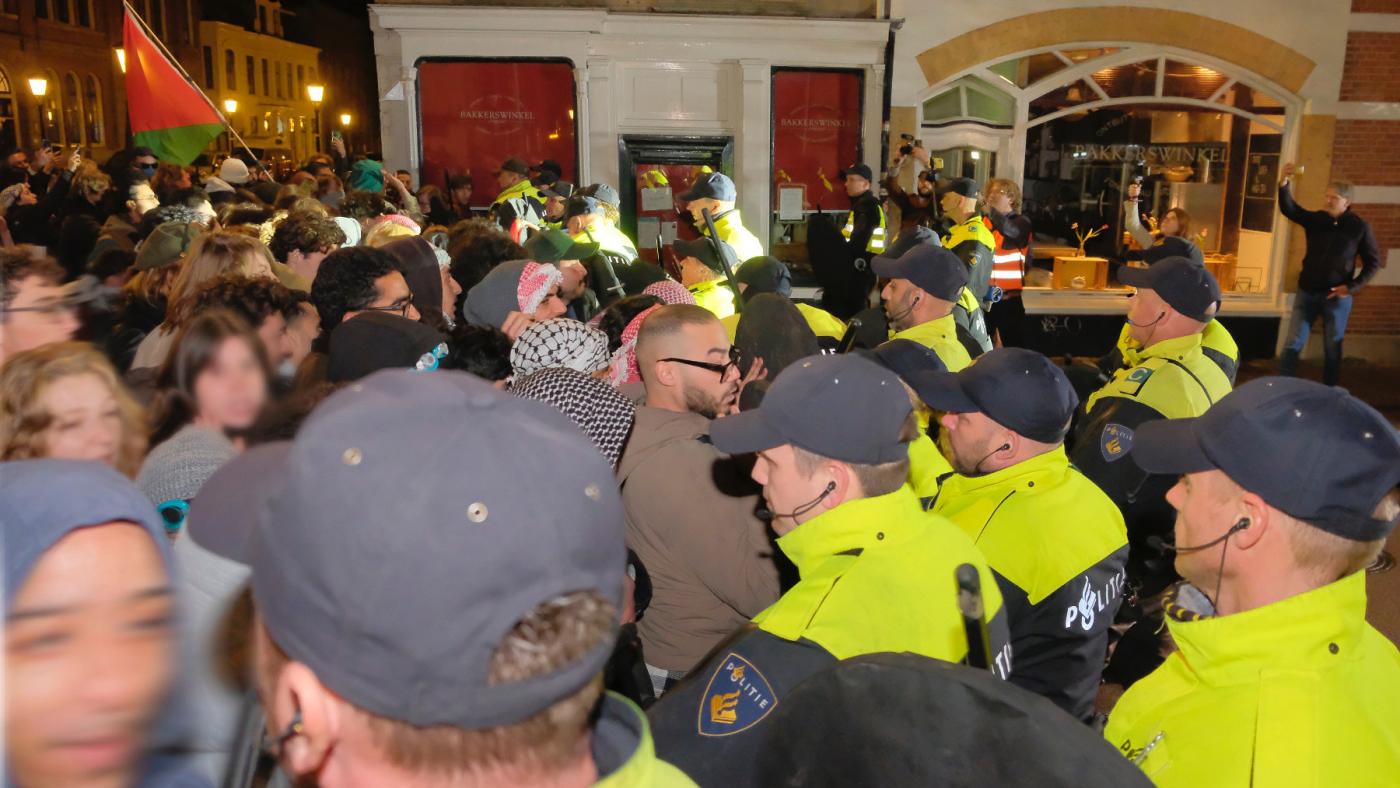Seven Scientist Rebellion members write open letter to UU
Hypocrisy or Democracy?

May 7th 2024 and May 8th 2024 will enter as a historic days in UU's history. Students and employees whose positions and demands were long ignored, peacefully set up a protest camp on university grounds. This inspiring manifestation of democracy was met with a police crackdown invited by the executive board of UU, involving pepper spray and the threat of police dogs.
As supporters and observers of the camp, we can attest nothing but commendable behaviour from the protesters with a strict insistence on non-violence. In their encampment, protesters took care of each other. They organized food, water, menstrual products, and yes, a barricade that seemed to materialize out of thin air. The latter, it was argued, was necessary to ensure safety. Violent attacks on the UvA camp on Monday are evidence that this was indeed reasonable.
Most remarkably, the camp community did not shy away from uncomfortable discussions. The executive board of the university was invited - by democratic consent - to join the assembly and discuss demands. This, they refused. The protesters, on the other hand, resolved their internal conflicts by open debate, the entire assembly falling silent to hear out individual voices. No one claimed direct authority without consent. This is what democracy looks like.
The pretense of enforcing 'house rules' does in no conceivable way excuse a violent crackdown on a democratic assembly. As scientists and scholars who have frequently protested for climate justice, we have witnessed first-hand how painful and traumatic police brutality can be. We have witnessed first-hand the juxtaposition of a just cause with unjust repression. We understand the hypocrisy that is used to justify an unjustifiable status-quo.
Yet, our experiences pale in comparison to that of those more marginalized. When the executive board gave permission for the police to enter university grounds, they put all protesters at grave risk. But every activist can attest that people of color, queer people and those with disabilities are disproportionately targeted by police brutality. For a university that claims to uphold 'equity, diversity and inclusion' this is abhorrent behavior. If that was not enough, the police raid happened during UU's 'wellbeing week'. This is what hypocrisy looks like.
And again, even this violence is nothing compared to the crimes unfolding in Gaza. We watch in abject horror as Palestinians are struggling for their very survival in Rafah. As UU students and scholars have attested on multiple occasions: the university is obligated to end its complicity in the genocide and occupation.
Now that UU appeals to us students and employees to maintain 'peace and unity', we wonder: whose peace? Also, unite behind what? Martin Luther King already knew that true peace is not the absence of tension, but the presence of justice. False peace is nothing worth uniting for.
This letter is not an appeal to the executive board. Instead, we ask all students and employees of UU: what university do you want to see? A university that will violently defend the status-quo, even if that status-quo spells genocide and climate-ecological breakdown? Or a university built on democracy and solidarity, led by students and employees, that does not shy away from uncomfortable discussions? Do you want hypocrisy or democracy? We know our answer.
This text was written by members of Scientist Rebellion Utrecht which is part of the international climate justice movement. The authors are either employees at UU or based in Utrecht.
Daniel Pflüger, PhD Candidate, Physical Oceanography
Chrysanthi Pachoulide, PhD Candidate, Toxicology
Marlisa Hommel, PhD Candidate, Institute for Language Sciences
Maike Weiper, PhD Candidate, Sociology
Elma Blom, Professor, Pedagogical Sciences
Sergej van Middendorp, PhD, Institute for Social Innovation Fellow, Fielding Graduate University, based in Driebergen
Nicolas P. L. Magnard, Postdoc, Leiden Institute of Chemistry, Leiden University